Towards a new strategy
The real issue is the capacity of the present civilian government to implement action plan's agenda items all the way
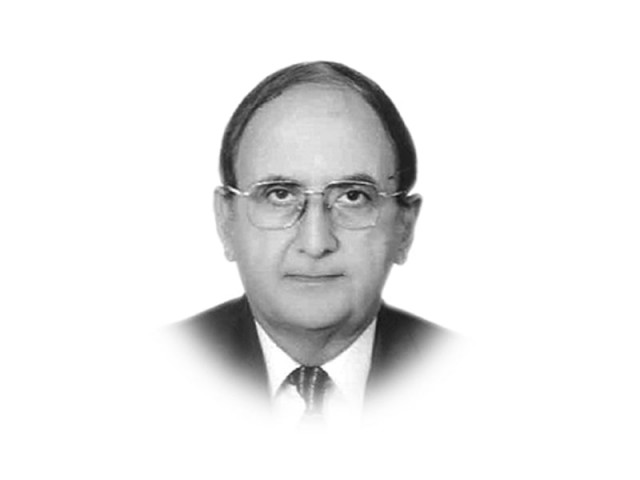
Towards a new strategy
The fury of the statements cannot guarantee the elimination of extremism and terrorism in Pakistan. Such statements were made in the past. However, there are two major differences this time. First, the army top brass is in the lead in persuading the civilian government to adopt a definite and comprehensive policy to control terrorism. The military, as a whole, and the army in particular have overcome the traditional ambiguity about the good and bad Taliban and their military action in North Waziristan demonstrated a non-discriminatory policy towards all kinds of Taliban and others groups based in the tribal areas. However, the civilian leadership, including the ruling PML-N, continued to be divided on how to deal with militancy. Now, after the Peshawar massacre, the army top command has built pressure on the civilian leadership to adopt a unified and tough policy for countering terrorism.
Second, the Peshawar school incident has created a major public upsurge for dealing with the Taliban and other militant groups with firmness. The public reaction has also led political leaders to come out openly against the Taliban. Leaders like Imran Khan and others, who were opposed to military action, and repeatedly expressed sympathy for the Taliban, could not carry on with their old policy.
Nobody would disagree with the 20-point plan of action announced by Prime Minister Nawaz Sharif but the real issue is the capacity of the present civilian government to implement these agenda items all the way. The PML-N government is expected to face serious problems in taking strong steps against the militant groups based in the urban areas of Punjab because a section of the PML-N leadership is known to be close to hardline groups and this connection has helped the PML-N in the past to get votes.
A number of the agenda items for countering terrorism are not new. These include taking action against hate literature, registering and regulating madrassas, not permitting banned organisation to re-emerge under new names, not allowing the formation of armed militias, stopping religious persecution and choking financing for terrorist groups. These commitments were made in the past but they were not translated into concrete policies. At times, some initial steps were taken but political imperatives forced the government to give up these policy initiatives. The present federal government will face strong opposition if it endeavours to regulate madrassas and interfered with their activities. Already, a number of religious leaders associated with madrassas are describing this as a Western and American agenda. Similarly, other items mentioned above cannot be implemented unless the federal and provincial governments are fully determined towards the implementation process.
It is easy to create a consensus on the need of eliminating terrorism. However, the problem is about defining terrorism, identifying its sources and agreeing on the methods to eliminate it. The confusion on these issues exists not only among most political parties but also within the ruling PML-N. This is going to cause serious operational problems for the PML-N in Punjab where some of the hardline and sectarian groups have made inroads into the PML-N circles. The best illustration of this problem is the current controversy about the statement of the Maulana of the Lal Masjid in Islamabad. This is a government mosque that propagates radical ideology. Until recently, the PML-N government was soft on the radical disposition of the mosque.
There is a need to reorient a large section of PML-N loyalists in addition to changing the orientations of others. The civilian government must quickly create a narrative of why it is so important to control extremism and terrorism. Such a narrative must challenge the arguments of pro-militancy and pro-madrassa activists.
A major issue with regard to countering terrorism pertains to getting court convictions of the people arrested on terrorism charges. As the investigation and prosecution system is weak, a large number of terrorists are freed by the courts. The army top brass wants the civilian government to strengthen the investigation and prosecution system and make necessary changes in the legal and judicial system to ensure that most of those arrested for engaging in terrorism are convicted by the courts. The civilian government did not do anything significant to rectify these deficiencies in the civilian legal and judicial system. It agreed to set up special courts headed by army officers for the prosecution of those accused of terrorism. This means that the army will arrest people on account of terrorist activities and put them on trial in their own courts. This may satisfy the army but it amounts to having no confidence in the civilian judicial and legal system.
The setting up of military courts at a time when the country is not under martial law is going to be a problematic issue. This move will require legal and constitutional changes because in the past, the Supreme Court had declared military courts unconstitutional. The same can happen again unless the Constitution is amended, which is going to be a difficult task for the government.
Military courts under a democratic dispensation weaken the civilian democratic process. The army is already engaged in counter-insurgency in the tribal areas and is making sure that rogue elements do not move across the Pakistan-Afghanistan border. Army personnel are providing security to several prisons and about 10,000 personnel are doing security duties in Punjab and under the federal government. The federal government wants other provinces to seek the army’s cooperation for countering terrorism. It is not difficult to conclude that the current civilian order is on the decline.
Published in The Express Tribune, December 29th, 2014.
Like Opinion & Editorial on Facebook, follow @ETOpEd on Twitter to receive all updates on all our daily pieces.









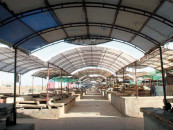
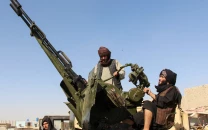
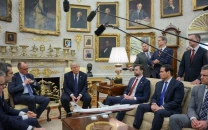
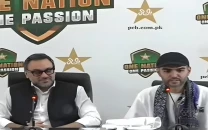


COMMENTS
Comments are moderated and generally will be posted if they are on-topic and not abusive.
For more information, please see our Comments FAQ